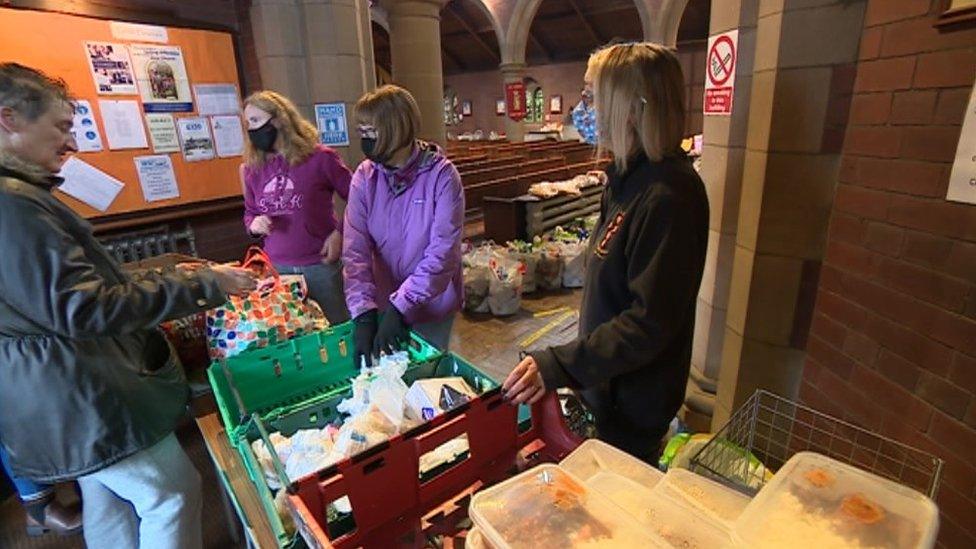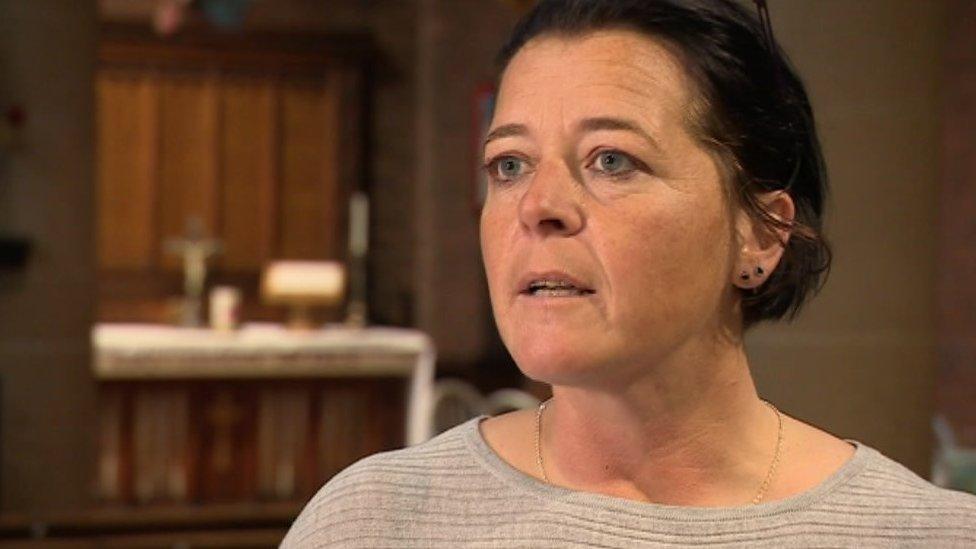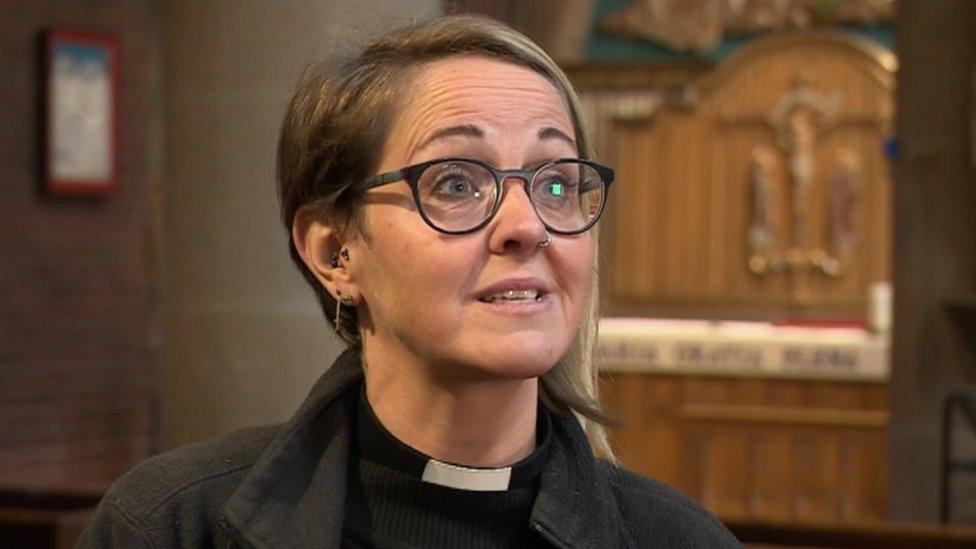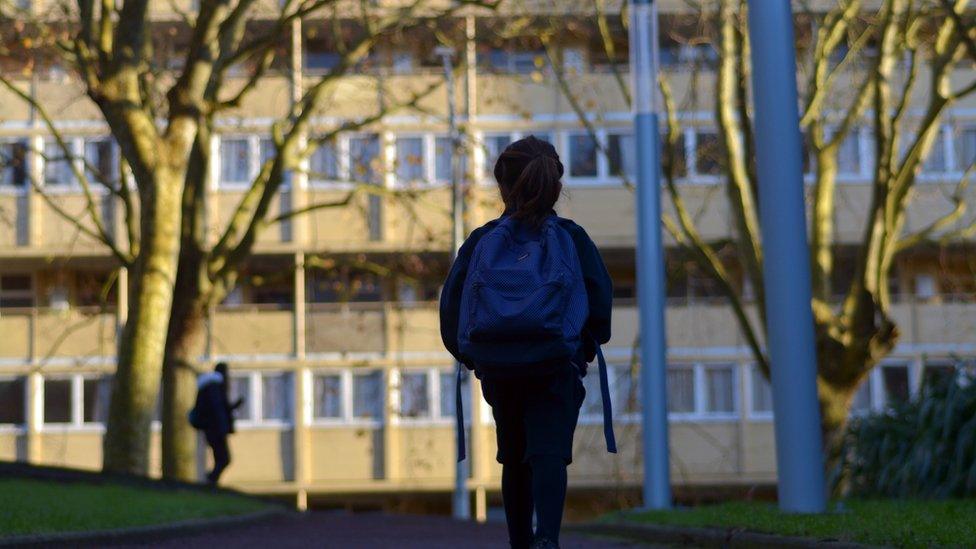Higher Universal Credit payment 'gives people dignity'
- Published

St Aidan's Kitchen food bank in Hartlepool has been helping people throughout the pandemic
The UK's poorest households have been receiving higher Universal Credit payments each week since April, but many are warning they will struggle if the measure is not made permanent.
An extra £20 a week. That's £80 a month, £1,000 a year. Few of us wouldn't feel the benefit of that cash.
But for Clair, who volunteers at the St Aidan's Kitchen food bank in Hartlepool, that extra £20 a week was a life-changing sum of money.
"It was amazing for me because I was struggling, I was a soup kitchen user myself," she said.
Clair was unemployed and receiving Universal Credit.
The year-long extra payment, provided by the government after the UK went into lockdown, was aimed at helping people through the coronavirus pandemic,
It allowed Clair to buy smart clothes for job interviews and afford the bus fares to travel to them.
And that got her back into work.
"If I didn't have that extra money I wouldn't have been able to get these places, because it costs a lot to get to Sunderland or Scarborough. And that's how I got a job."

Clair, a volunteer at the food bank, says the extra money has got her out of a "nightmare"
Clair says the extra payment has made a huge difference to people claiming Universal Credit.
"Before we had this extra £20 a week, to live on it was a nightmare. By the time you've paid for your rent and your bills, I was left with about £30 to £35 a month to live off.
"It's not like it's taken for granted, people were over the moon about it. It gives you a bit of respect."
But there is no guarantee the extra payment is going to last.
It is due to expire in April. Calls from charity and community leaders to extend it began when it was not mentioned in Chancellor Rishi Sunak's Winter Economic Plan.
The government is facing mounting costs from coronavirus and if unemployment continues to rise, more people will be claiming Universal Credit.
Paul Howell, the Conservative MP for Sedgefield, in County Durham, says Mr Sunak has a lot to consider.
"Everyone is talking about it being taken away; let's just remember that it's been given.
"This £1,000 increase has been given to try and help people in this situation.
"It's there until March at the very least. I don't know what the chancellor is going to do in March, nor does anyone else, I would suggest."

The Reverend Gemma Sampson believes the additional payments mean families do not have to choose between food or heating
Back at St Aidan's Kitchen there is an acceptance the government has a difficult task on its hands dealing with the cost of Covid-19.
But the Reverend Gemma Sampson says the extra payment is the only thing stopping many people in Hartlepool falling into extreme poverty.
She believes ministers must ensure that supporting the least well-off is their priority.
"It makes a difference in every way and it's not always spent on luxury items, it's spent on basic things," she says. "It means people can have a bit of dignity and don't have to come to us for their loo roll.
"If people suddenly have to do without an extra £20 a week it means they have to go back to choosing between feeding their kids or keeping them warm.
"That is not a choice I would want to make. What do you do? Listen to your child cry because they're hungry or because they are cold?"
People in the North East and Cumbria can see more on this story on BBC One's Politics North on Sunday 18 October at 10:00 BST.
- Published30 September 2020
